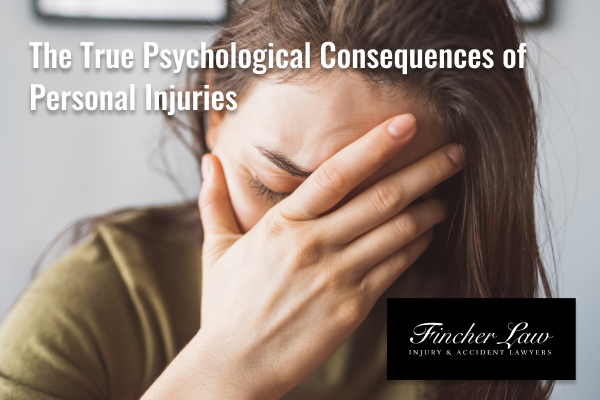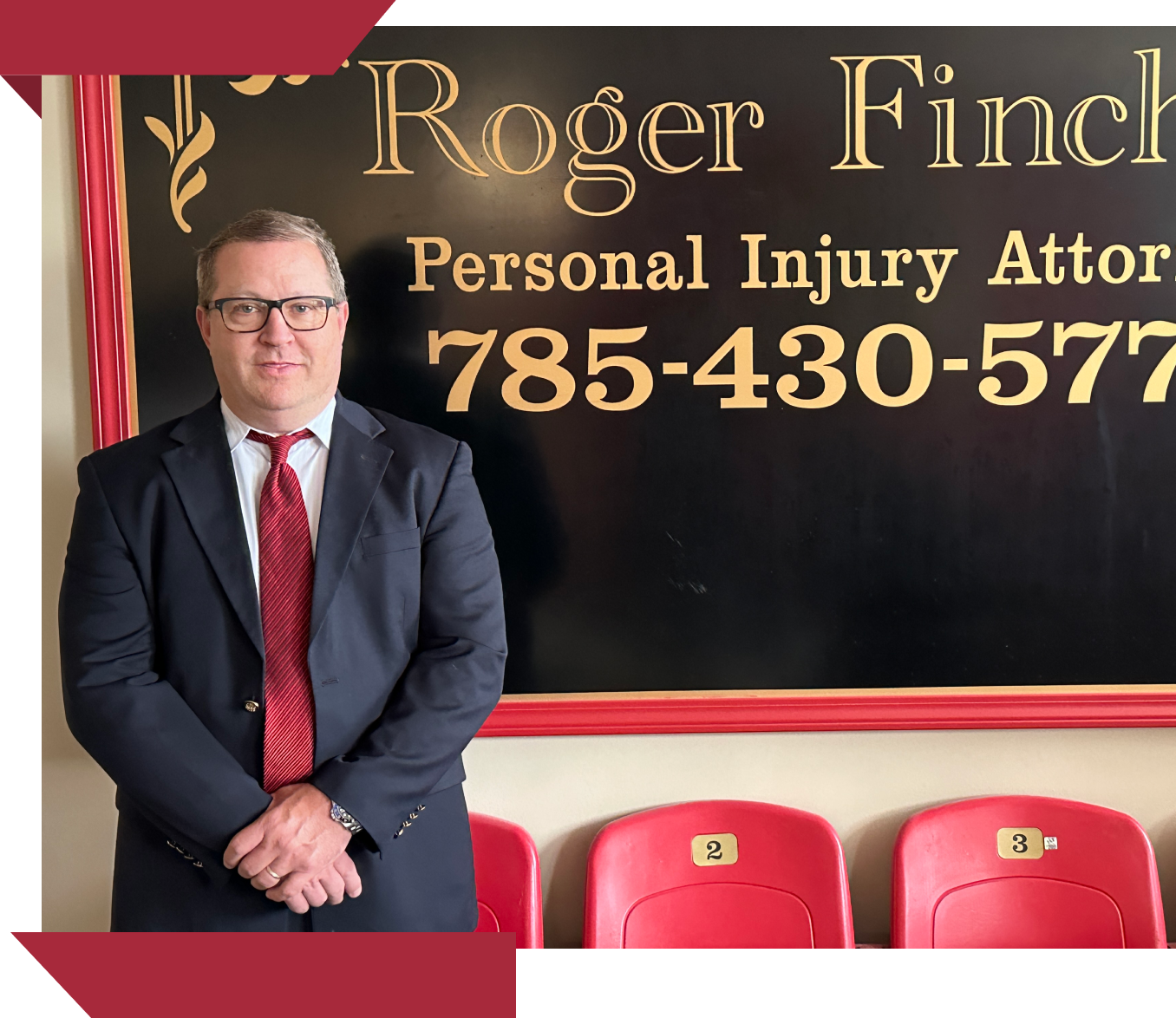
When someone suffers a personal injury, the physical damage is often clear and immediate. However, the psychological impact can be just as severe and not as visible. In Topeka, Fincher Law understands that recovering from a personal injury is a journey that requires both physical and mental healing. Our law office is dedicated to supporting clients through this challenging time and ensuring they receive the comprehensive care and compensation they deserve.
Mental health often takes a back seat in the aftermath of a personal injury, but its effects can last a lifetime. Victims may struggle with anxiety, depression, and post-traumatic stress disorder. Car accidents are always critical; our personal injury attorneys can help you. We can negotiate with the insurance company and submit a personal injury lawsuit on your behalf. Let us recover compensation for your medical expenses or a wrongful death. Contact our Topeka car accident attorney for a free consultation.

Personal injuries do more than just harm the body. They can also leave deep psychological scars. Victims might face intense emotions like fear, anger, and sadness. These feelings can disrupt their daily lives, making it hard to work, enjoy hobbies, or even leave the house.
Over time, these emotional struggles can turn into severe mental health conditions. Without proper support, victims may find themselves feeling isolated and helpless. It's important to acknowledge these psychological effects early on. Doing so can lead to better support and a more comprehensive recovery plan.
The emotional toll of personal injuries doesn't just fade away with time. For many, the psychological impact can last much longer than the physical wounds. Victims may pull away from loved ones, drop out of social activities, and struggle with feelings of isolation and loneliness. This can make the road to recovery even harder.
The stress of medical expenses, lost wages, and insurance companies can exacerbate mental health issues. Victims often feel overwhelmed by the financial pressures of their situation. This can lead to further emotional distress. Recognizing these long-term effects is needed to provide the support victims need to recover fully.

Emotional distress is a substantial part of personal injury cases, but it's harder to prove than physical injuries. In Topeka, the law recognizes the right of victims to claim compensation for psychological harm. This includes suffering from conditions like anxiety, depression, and PTSD as a result of the injury.
Non-economic damages cover intangible losses in personal injury cases, including emotional distress. These damages acknowledge that an injury's impact is not just physical. Our car accident lawyers aim to compensate victims for the chronic pain and loss of enjoyment in life caused by their injuries.
Victims have the right to seek compensation for these non-economic damages. But quantifying them can be challenging. Fincher Law uses expert testimony, medical records, and personal accounts to build a strong case for these claims. This evidence is necessary for showing the depth of the victim's suffering and the need for fair compensation. Our car accident attorneys can help.

Professional mental health support is important for personal injury victims. Therapy and counseling can help victims process their trauma, develop coping strategies, and start to rebuild their lives. Ignoring mental health can hinder recovery, making it vital to seek help early on.
Access to mental health services could be a financial burden, especially when combined with medical bills and lost wages. That's why Fincher Law fights for compensation that covers immediate medical treatment and long-term mental health support. Ensuring access to these services is key to our commitment to our clients' recovery.
Emotional recovery is integral to the healing process after a personal injury or car accident. At Fincher Law, we understand that true recovery encompasses both the mind and the body. We advocate for our clients to receive comprehensive care that addresses their mental health needs.
Our approach involves working closely with medical professionals to ensure our clients can access the mental health support they need. We also consider the emotional impact of the injury when negotiating settlements, striving for compensation that reflects all the harm you've sustained.

Ensuring that personal injury victims have access to the mental health resources they need is a priority for Fincher Law. We understand the critical role that mental health support plays in recovery. Our team works diligently to secure compensation that includes coverage for mental health services. We relieve the financial burden on our clients.
We also provide guidance on finding the right mental health professionals and support services in the Topeka area. We help our clients on their journey to emotional and psychological healing.
Determining the value of your case involves considering both the physical and emotional impacts of your injury. At Fincher Law, we conduct a comprehensive assessment of your situation. This includes the psychological effects of the crash. We ensure that any settlement offer truly reflects the extent of your suffering and losses.
We fight for compensation that covers medical bills, lost wages, and the cost of mental health treatment. We do not neglect non-economic damages like pain and suffering. We aim to secure a settlement that allows you to move forward with your life, fully supported in your recovery.

Suffering a personal injury is a life-changing event that affects both your physical and mental well-being. At Fincher Law, we understand the complexities of these cases. We are committed to providing the comprehensive support you need. Our Topeka car accident lawyer is ready to fight for your right to fair compensation. This includes the psychological impacts of your injury. Contact us today for a free consultation.



How Can We Help You?
How Can We
Help You?
Schedule a Free Consultation Now By Contacting
Our Team at (785) 430-5770 or by completing the form below
Schedule a Free Consultation Now
By Contacting Our Team
at (785) 430-5770
"*" indicates required fields